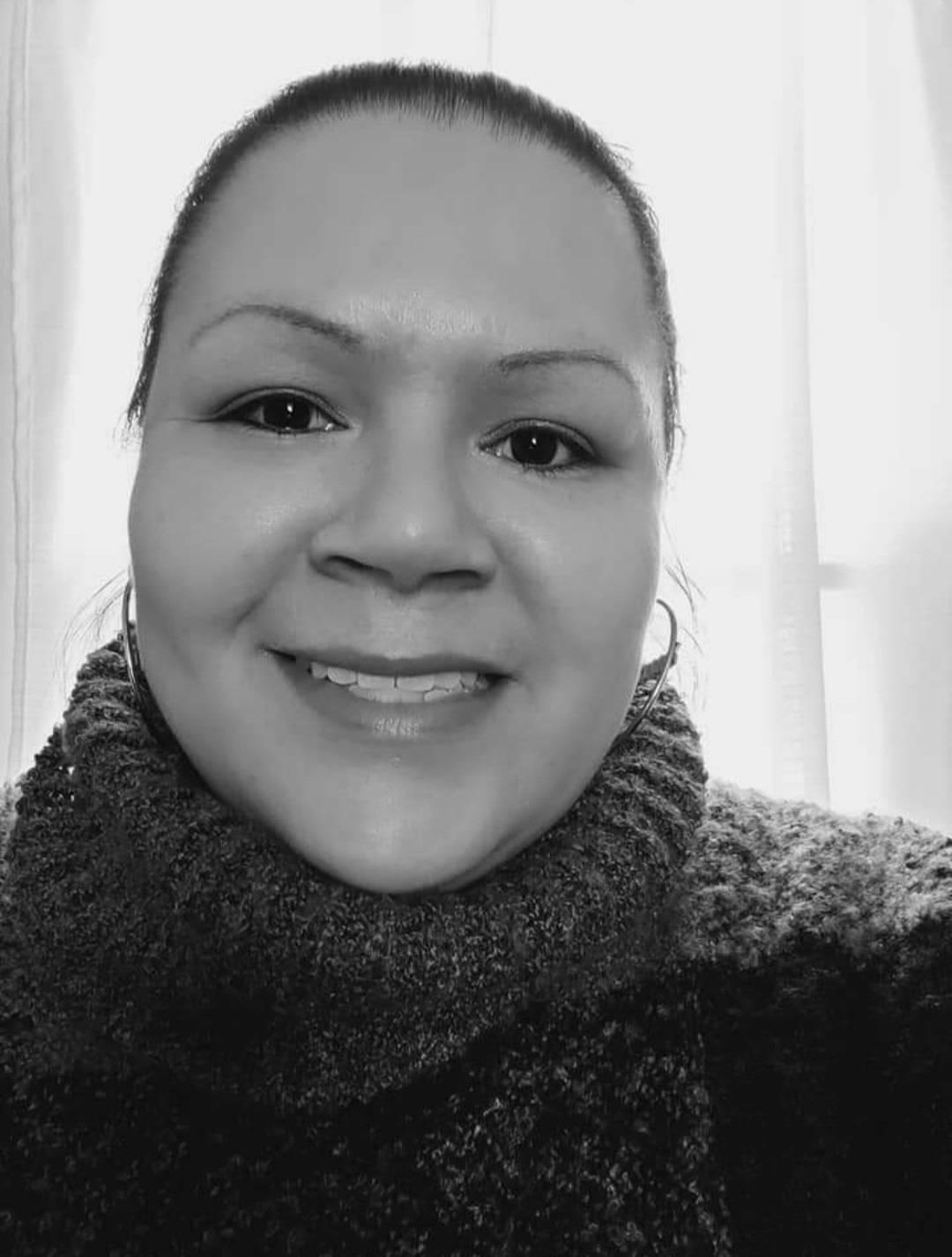Urban Indigenous Homeward Bound
Urban Indigenous Homeward Bound: Connecting for the Dream
By: Jennifer McPhee, Senior Policy Advisor, OFIFC
May 2024

Pitawanakwat describes herself as "lost in her trauma" at the time. She hadn’t lived in her hometown of Fort Erie for 20 years and was nervous about reconnecting with the local urban Indigenous community. Gradually, though, she began to attend women’s drumming circles at the Fort Erie Native Friendship Centre (FENFC).
At one of these events, a Friendship Centre board member asked if she would consider participating in a new pilot program, Urban Indigenous Homeward Bound (UIHB). "I didn’t know what UIHB was, what the goals were, or even what being a pilot participant meant, but I said yes and jumped right into it," she recalls.
Urban Indigenous Homeward Bound has since become a permanent initiative at the FENFC and is offered by six additional Friendship Centres in Ontario - although funding for the program is still frustratingly precarious. The program spans four years and supports sole-parent Indigenous mothers to overcome the barriers they face when trying to find employment, safety and prosperity for themselves and their children.
The first year of the program was absolutely critical, says Pitawanakwat. "It took about six months of counselling for myself and my children to achieve a sense of stability," she says. "I started to get into a good headspace where I could think about my goals and my future. I decided I wanted to become a social worker to help women going through what I had gone through."
Amy Brunning, coordinator of the UIHB program at that time, was a steady source of support every step of the way, says Pitawanakwat. "I would almost call her my hero today," she says. "She showed me absolute support and guidance. She answered my many questions about how to apply for college and how to access OSAP, bursaries and scholarships. She was of great assistance, whether it was printing applications, helping me fill them out, or providing reference letters."
When Pitawanakwat was accepted into the social service worker program at Niagara College in April 2019, she felt physically, mentally, emotionally and spiritually up for the challenge. But then, the following month, her older sister passed away suddenly, and she was hit with trauma all over again. "I have a history of addiction which causes me to struggle with my mental health and wellbeing," she says. "That should have been the moment when I relapsed, and gave up on all my goals. But the Friendship Centre checked in on me because they were fully aware of how much support I needed in that moment."
As soon as she returned from her sister’s traditional burial in their home reserve of Six Nations of the Grand River, the Friendship Centre asked her to stop by because they had gathered a generous donation to help her family. "I was blown away by that," says Pitawanakwat. "And when I arrived, they had spiritual helpers present for a Haudenosaunee condolence ceremony to help me through my grief. It was everything I needed to stay on track in my healing journey."
Pitawanakwat started college that September. Around that time, the Urban Indigenous Homeward Bound Program managed to secure funding to assist program participants with a rent supplement, which helped Pitawanakwat pay for child care and vehicle maintenance for the 40-minute trek to Niagara College.
Then, an opportunity came up that put her on an unexpected career trajectory. During one of her classes, the "Be World Ready" program at Niagara College delivered a presentation about international field studies. For less than $2,000, she could travel to Guatemala to participate in a 10-day program about the grassroots efforts of non-profit organizations working in the social service sector and health care systems. "For the first time, I had enough money in the bank to travel far, farther than I ever dreamed possible. I had lived in poverty my whole life, so this opportunity was certain to be life-changing. I texted my mom and she said, ‘I’ll support you by watching the kids. Go Ashley. Go, live your life.’"
While in Guatemala, she learned about Indigenous people from countless communities attempting to flee Central America due to forced displacement, violence and human rights abuses. She became aware of families being separated from their children in the United States and being sent back to Guatemala. I was exposed to things that completely changed my vision for what kind of social worker I wanted to be. I found myself returning to Canada with a new found interest in working in settlement services and immigration.
Before graduating with honours, Pitawanakwat began a student placement with the Fort Erie Multicultural Centre. As soon as she had her diploma in hand, they offered her a permanent position working as a Settlement Worker and she has remained with the organization for nearly four years. Her role involves helping refugees with their first steps in Canada including accessing legal aid, applying for social assistance and finding affordable housing and employment. She also assists with educating newcomers about Indigenous people and Canada’s colonial history. Pitawanakwat says she feels a great sense of empathy for the newcomers she assists as many have experienced a similar history of violence and colonization.
Pitawanakwat is a two-time recipient of the Regional Chair’s Niagara Impact Award and a winner of the OFIFC’s Strong Woman Award. "I had to overcome a great deal of trauma, loss and pain to get to where I am today," she says. "It took a lot of work and commitment. Looking back, I can say the first step was having a belief that I am worthy of good things."
She proudly exited the Urban Indigenous Homeward Bound program in 2022 and has since sought ways to give back to the program as an alumni. "I talk openly and honestly about my journey to where I am today. I feel it is important that I share my story to inspire and help guide others – whether that means talking about my own struggles with addictions and mental health or giving insight on what helped me be successful in my quest for a post-secondary education and career."
The UIHB program not only changed Pitawanakwat’s life, but has also changed the course of her children’s lives and will certainly continue to have a positive impact on future generations. "My eldest daughter is 18 now and she is going to college in September," she says. "Statistically, it is very unlikely that she would go to college if I hadn’t reached out for help. My daughter learned that it’s okay to access counselling for mental health. In terms of abstaining from drugs and alcohol, she watched her mom turn to ceremony and surround herself with a healthy community. She also witnessed me overcome my struggles with balancing all my different responsibilities while at school. From all of this, she learned that you don’t give up. You reach out and ask for help, and you to do what you need to do to keep things on track."
To learn more about the Urban Indigenous Homeward Bound Program, please attend the session Urban Indigenous Homeward Bound: Connecting for the Dream at the 2024 OMSSA Exchange Conference on May 8th at 10:30 a.m.
About the Author

The Ontario Federation of Indigenous Friendship Centres (OFIFC) represents the collective interests of 31 Friendship Centres in cities and towns across the province. Friendship Centres are places for community members and Indigenous people living in urban spaces to gather, connect with one another and receive culturally based services. Friendship Centres improve the lives of urban Indigenous people by supporting self-determined activities which encourage equal access to, and participation in, Canadian society while respecting Indigenous cultural distinctiveness.
Blog categories: Indigenous, Social Work, Employment, Niagara Region